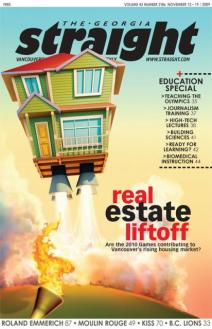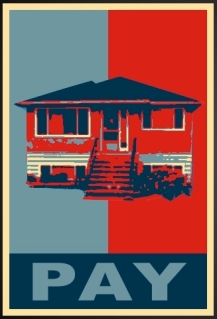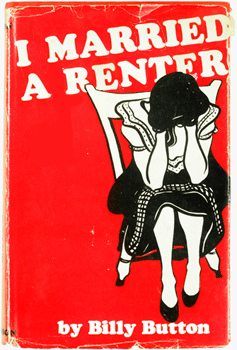
A recent report from Zoocasa shows that even the least expensive cities in the country can require a major financial commitment for solo buyers. Experts say individuals shouldn’t be spending more than three times their annual income on a home. But according to Zoocasa’s report, the average buyer would have little choice but to break that rule.
“Overall, even in the least housing expensive markets, home ownership is a significant expense for single people in Canada,” Zoocasa CEO Lauren Haw said. “Our report found that a single homebuyer would need to spend a minimum of four times their annual income to be able to afford a home on in their own.”
“Though we expected to see Vancouver and Toronto up at the top of the most unaffordable regions list, we were surprised to see just how high the price-to-income ratio was in these cities,” said Haw. “This demonstrates that home ownership in Canada’s major urban areas on a single income would be very difficult, if not impossible by measures of affordability.”
Keep in mind that a ratio of 5 (yes, five) is historically seen as ‘severely unaffordable’. – ed.

































All of Canada is in a bubble. All of it. But Vancouver is the most egregious.
As vreaa says: 5x income is overpriced by historical norms. Vancouver is 28.
This is why I say there will be blood on the streets. I don’t say that frivolously. I literally think blood will be spilt.
And to anyone who thinks history doesn’t matter, and that 28x income is the new norm, you need to reflect on what that would mean for the broader viability of our society. It would break down over time. There is no free lunch. The piper will be paid. In fact, he’s already collecting — in myriad ways — in case you haven’t noticed.
Preach.
do you happen to remember as kid stealing down to wreck beach thinking to gaze upon raving beauties … and instead gazed upon wrinkled old hippies
Oh, I remember. Impossible to forget.
#ShatteredDreams
To my earlier point re: the fallout of this bubble.
This is actually quite serious.
There will be blood. In homes. In the streets.
And, again, I don’t say this lightly. I truly hope that it does not turn out this way. But I am not optimistic.
We are talking about the unwinding of one of the greatest bubbles in the history in mankind (I mean, “peoplekind”). The amount of wealth that will go up in smoke is staggering. Never mind that it’s unearned and illusory–people now feel entitled to it. Their financial lives have been re-calibrated on the assumption that current prices will last forever. And tangled in with their financial lives are their romantic lives, their family lives, their community lives. It’s all going to come apart.
At one of the spectrum are those whose spouses will give them the boot, or at least relegate them to the couch, as punishment for their financial foolhardiness.
There will be intergenerational tension. The Bank of Mom will close.
But that’s nothing. Some households, so distressed at their newfound and unexpected circumstances, will become violent.
Others will turn to the bottle. They’ll drive drunk–injuring and possibly killing innocents.
Others still will commit suicide.
Others will loot and rally in the streets. There will be fights, tramplings.
As I say, blood will be spilt.
No one talks about this.
Countries in economic crisis almost always go to war.
China and the USA are #1 and 2 or #2 and 1 in the world depending on your metric. And they both know that their economies are built on quicksand, funny money, and credit.
Ask yourself why the US has built the world’s first trillion-dollar weapons system; the F35. There are no other fifth-generation fighters (that we know of) and theoretically big green armies don’t cross borders the way they used to in the 20th century.
Yet the US insisted on spending a trillion dollars to be ready to fight the next great war.
Somebody believes it’s coming.
A few observations related to the ‘scary’ data presented in this article:
1. The benchmark prices of combined detached, attached and condos are paired with median income. One person households typically do not buy detached houses but go for something cheaper. Benchmark prices for condos and townhouses are lower. So, this kind of data pairing is a bit biased, I would say.
2. ‘Experts say individuals shouldn’t be spending more than three times their annual income on a home’. So, per ‘experts’ a one person household cannot afford a benchmark house in any of the cities listed. See my first comment.
3. People do not buy houses with just income. Most have savings and equities. Pairing median mortgage amounts with median incomes would be more appropriate for evaluation of how much income goes into housing.
4. Bubble or not, I think it will come down to who will blink first: buyers or sellers. Sellers are still listing the houses at last year’s prices. Buyers are hoping for the price drop but are they offering below asking? I do not know. If yes, are below asking offers accepted more often than not? Not sure about that, either. Good houses still sell quickly. The interest rates are not going up fast enough to make a big difference. My hunch is that buyers will blink first, as it happened before.
PS. I am not a RE agent and will in no way profit from the RE prices going up or down.
“1. The benchmark prices of combined detached, attached and condos are paired with median income. One person households typically do not buy detached houses but go for something cheaper. Benchmark prices for condos and townhouses are lower. So, this kind of data pairing is a bit biased, I would say.”
No, it’s not biased, because single-income does not always equate with single-person. There are many single-income households. Also, one of the points of this article is to highlight differences across geographical markets. As long as the same metric is used for all, the results are useful.
“2. ‘Experts say individuals shouldn’t be spending more than three times their annual income on a home’. So, per ‘experts’ a one person household cannot afford a benchmark house in any of the cities listed. See my first comment.”
This is precisely the point; In normal markets, people don’t have to pay so much for a house. That they cost so many times more than they have historically indicates overvaluation.
“3. People do not buy houses with just income. Most have savings and equities. Pairing median mortgage amounts with median incomes would be more appropriate for evaluation of how much income goes into housing.”
People have always applied savings toward their home purchases, so this point is irrelevant.
“4. Bubble or not, I think it will come down to who will blink first: buyers or sellers. Sellers are still listing the houses at last year’s prices. Buyers are hoping for the price drop but are they offering below asking? I do not know. If yes, are below asking offers accepted more often than not? Not sure about that, either. Good houses still sell quickly. The interest rates are not going up fast enough to make a big difference. My hunch is that buyers will blink first, as it happened before.”
As I’ve said before, “buyers” and “sellers” are not organized groups whose members act in coordination with one another. It’s not like they all get together and agree to “blink” or not. They are made up of many thousands of individual constituents, each which their own financial profiles, wishes, timelines, etc., and each acting according to their own self interest and no one else’s.
“PS. I am not a RE agent and will in no way profit from the RE prices going up or down.”
The fact that you felt compelled to add this only confirms the obvious.
1) Lots of single people buy SFH. Just not in our loonie toons economy.
2) Experts are called that for a reason. The 3x income metric exists for a reason.
3) So if I make $30,000 but I have a $200,000 inheritance, it is reasonable for me to buy a Lambo? Price to income ratios exist for a reason.
4) Prices are set by the buyer by definition. Every single time. No house ever sold for more than a buyer was willing to pay.
Paying 10x or 20x or 50x income for a house is insane. Just completely insane. Vancouverites tell themselves a story about why it makes sense but they are wrong.
And they are about to find out why they are wrong. (See the first post by El Ninja).
To Burnabonian:
1) True. But the presented data are for our loonie toonie economy. It does not factor in the wealth, only income.
2) I think 3xincome ratio is the thing of the past when you could put 5% down or less, amortization for 35 years, and normal interest rates. Current requirements for down payment, lower interest rates, and such can easily make ratio of at least 5xincome reasonable.
3) No, it would not be reasonable to buy a Lamborghini (it is never reasonable to buy a Lambo) but it might be affordable?
The fact that one can afford something does not make the purchase reasonable.
4) True. Buyers pushed the prices up and they may keep them up. Are there more motivated buyers or motivated sellers?
People want to live here. All things being equal, would you rather live here or skate on Rideau Canal for 5 months a year?
@Joan:
1. No, it’s not biased, because single-income does not always equate with single-person. There are many single-income households. Also, one of the points of this article is to highlight differences across geographical markets. As long as the same metric is used for all, the results are useful.
2. This is precisely the point; In normal markets, people don’t have to pay so much for a house. That they cost so many times more than they have historically indicates overvaluation.
3. People have always applied savings toward their home purchases, so this point is irrelevant.
4. “Buyers” and “sellers” are not organized groups whose members act in coordination with one another. It’s not like they all get together and agree to “blink” or not. They are made up of many thousands of individual constituents, each which their own financial profiles, wishes, timelines, etc., and each acting according to their own self interest and no one else’s.
“PS. I am not a RE agent and will in no way profit from the RE prices going up or down.”
The fact that you felt compelled to add this only confirms the obvious.
wastin’ away in moderation-ville…
apologies re mod held up comments…
not my doin’…
Meanwhile somewhere in the USA, they only wished they were a model city like Vancouver…
https: http://www.usatoday.com/story/money/2018/04/03/hot-housing-market-home-buyers-spending-more-than-expected/479824002/
(Links usually kick me into moderation…)
The world has gone crazy.
Joan (thanks for the comments) stated: “People want to live here. All things being equal, would you rather live here or skate on Rideau Canal for 5 months a year?”
It is common for people to make this kind of appeal to emotions after looking at the math. Sure, we’d rather live in Vancouver, but does that mean RE prices should lose all contact with fundamentals here because of that?
We would argue no.
What is the ‘Vancouver premium’? 300% over Halifax (four times more for a home)?
Homes should end up being priced at utility value for people using those homes in a given economy (rather than as speculative playthings). If that were to come to pass in Vancouver, homes would cost about 33% of what they now sell for. Perhaps even less.
Joan: “People want to live here. All things being equal, would you rather live here or skate on Rideau Canal for 5 months a year?”
This is called a false choice. A trap.
In any case, all else is *not* equal, is it?
To vreaa and Ninja,
No, the 300% surcharge on living in Vancouver is not reasonable but neither is 3xincome house price expectation. Like it or not, Van and Toronto are two most desirable cities to live in Canada (for many reasons) and the 3xincome ratio will simply not happen for these cities. The reality will not adjust to the expert expectation/recommendation. This expectation of somewhat archaic when it comes to big cities with good economies, quality of living, and such, in the era of globalization when the cash flows freely around the globe. Show me one major desirable city to live in with benchmark home prices=3xmedian income. No need to look too far – just look at the US west coast. Of course, Vancouver is more twisted, but experts should let the 3xincome rule go, it no longer applies to certain cities or regions.
As for the prices loosing touch with fundamentals – I think Vancouver fundamentals go beyond local economy and income. There is a lot of wealth supporting the prices. I live in a small townhouse complex on a westside. No empty units here. people know their neighbors. The last buy/sell here was 2 years ago – 4 townhouses were sold to: a family with 2 working parents and three teenage kids, one student, one older couple, and one old single lady with a cute dog. The average selling price was about 1.2 mil. Do you really think the student and the old lady bought their properties with their income?
Think of folks selling their houses along major roads for development. Are they buying their the next house or condo or multiple condos their income? These folks can push the prices up creating new benchmarks in different neighborhoods.
Yes, it is bad for ordinary folks, but saying that is bad does not change much. I do not know a solution. Vancouver marked defied the expert expectations and recommendations many times, and I think it will be more reasonable to adjust these expectations rather than to think that the reality will change to fit the expectations.
Real estate pumper Joan Tommas peddles the “it’s different this time” fallacy.
VREAA, can we not have a rule where Realtors ™ are required to declare themselves or else get banned?
This person has as good a BS Realtor platitude schtick as any of his colleagues that I have met.
No, Joan, it’s not a “new normal”.
No, 3x income for a house is not a quaint historical notion.
No, the presence of mountains and ocean does not mean that the sticks and mud you resell for a living are worth 4x more.
No, there is not some secret flood of invisible wealth pushing prices into the stratosphere. The non-real-estate wealth (or conspicuous lack thereof) of Vancouverites is well-documented.
No, the presence of money laundering and Smurfing is neither permanent nor reliable.
No, you should not risk your family’s future on BTC, Tulip Bulbs, overpriced soggy Vancouver condos, Bre-X, Iraqi Dinar, or pets.com.
Yes, if it seems too good to be true, it almost certainly is.
Ninja,
As awesome as I am, sadly, I have no power to neither pump the real estate or take it down. It seems that calling someone a RE agent is an insult these days? Is this why you are doing it? Or do believe that everyone who does not believe in Vancouver RE armageddon must be a person profiting from RE? No respect for difference of opinion?
Burnabonian,
See above.
Well, neither you nor I know for sure if this is a new normal. Maybe it is, maybe it is not.
I just believe that 3xincome is not appropriate for every place and time, no matter how much people think is should. The RE data from around does not support the 3xincome rule (spoken like a true RE agent, didn’t I?)
Mountains and ocean… sure they add. Maybe not for you but for many. I shoveled snow for 10 years before moving here. West Coast living is different. Good different.. You can’t buy weather. That is one of the value added factors that affects property prices.
No, there is no secret wealth. The wealth is real. Maybe the money laundering is a bit of a secret, I don’t have data on that, so cannot comment.
You should not risk…. No, you should not, but some folks do not see spending many as a risk or maybe they can put up with consequences. Some invest in RE so their grandchildren can live here and some spend on travels and nice cars. Who are we to judge what people should and should not do their or borrowed money. Do what you want as long as you can take the consequences. So go ahead, buy that Lambo 🙂
Lastly, I do not do well in an environment of mutual adoration. Can’t you and Ninja respect a different point of view without throwing insults at people? Are folks only supposed to comment if they follow the party line (big crash is coming, brace for impact)? Over and out.
Hi Joan. I will focus on this: “Mountains and ocean… sure they add. Maybe not for you but for many. I shoveled snow for 10 years before moving here. West Coast living is different. Good different.. You can’t buy weather. That is one of the value added factors that affects property prices.”
The “Vancouver premium” is built on the general attractiveness of Canada, the mild climate here, and pleasant scenery. It has existed for a long time.
While I believe the “Vancouver premium” is a very real thing, it is a minor driver of present prices. Loose credit/ cheap debt, gorged on by so many local and foreign speculators (the latter of whom may also be attracted to Canada’s high tolerance for citizenship of convenience), is a much bigger player in this mix. Some cities around the world in particular have seen a concentrated impact from these policy dynamics, with Vancouver being one of them. The bad news for Vancouver is that, compared to NYC or San Francisco (or Toronto or Seattle), professional opportunities in a variety of sectors here are pathetic.
This region’s future is diminishing steadily. Consider: this province’s economy is more dependent on real estate and related sectors than Alberta’s is on oil and gas – and that dependence is only growing. The economy is DE-diversifying. Consider: the Lower Mainland is struggling to attract and retain workers at all levels, from entry-level positions to physicians. I work in health sciences and I’ve been party to hiring efforts for a variety of workers in that sector. In nearly every instance where I have seen people try to recruit someone to this area who has no ties to the region, the effort has failed. And the primary reason has been the level of compensation vs. the cost of living. Friends working in legal, engineering, and even corporate real estate (!) sectors have noted similar outcomes.
I don’t have a slavish affinity for the 3X income metric, but I absolutely think 1) Vancouver is out of whack by many multiples when it comes price-to-income and 2) that this outcome is a product of a variety of poorly conceived policies related to debt, taxation, land use, and immigration.
I gave up on guessing when things might correct, but market forces are going to increasingly assert themselves in other areas. Shortfalls in essential services will drive wage increases to sustain at least skeleton crew staffing levels – and these will be supported by increased taxes and fees for those who don’t move away (read: property owners who are on-paper rich). The centre of this region – home to 2.5M people – is slowly being hollowed out. That dynamic will hurt a lot more than just those who are on the outside of the real estate game.
Joan plays victim and says we didn’t “respect” her views. Sorry, this is about good vs. bad ideas. Supported vs. unsupported claims. Not personal.
Vancouver has had the attributes you cite — mountains, weather, etc. — since the city first came into existence. These things are not new. Everyone knows about them and they’ve been priced in to the market since forever. These factors do NOT account for the massive price inflation of recent years.
You know what does? Record-high debt, speculation, greed, and fraud. These things are new, at least in the scale at which they’ve recently manifested.
You either think this is the “new normal” or you think it’s not.
If you think it probably or possibly will revert to fundamentals, you do what we do which is to admonish every buyer not to destroy their financial future and every owner to GET TO DA CHOPPA!!!
Anyone saying “well nobody knows for sure and in the meantime you need to live somewhere and lots of people just borrow their parents’ retirement funds and it’s fine so I think you are all overthinking it because there are Asians coming and we have mountains and it’s a global economy now blahbbitty blah”…is really just saying “I’m sure it won’t revert to the mean, but instead stay priced higher than Manhattan for at least a human lifespan”.
Which means that they have no credibility, since all bubbles always burst and all asset classes always revert to their fundamental valuations.
Hope you’re keeping up your scheduled maintenance on your lease vehicle, since turning it in early means lots of penalties as it is.
RBC Housing report from maybe 2 years back showed that the average monthly mortgage payments only went up about $100 since 2008 or so, despite the massive increase in housing prices. The reason is the low interest rate. The 3X income rule was formed in the 70s/80s when mortgage interest rate was around or over double digits. It’s a rule of thumb and it fitted the environment then. It isn’t a rule set in stone that is insensitive to interest rates.
These are not very hard concepts for the so-called experts on this blog. Surprised at how many bears who fail to get these simple concepts.
Real estate prices don’t match local incomes. True. Neither do the number of luxury cars. We also have Hermes Vancouver, Brooks brothers Vancouver, and Tiffany’s Vancouver. Vancouver is increasingly a two tiered city, with less and less on offer for a shrinking middle class. Goodbye Eatons, Woodwards, Sears, A & B sound, Toys R Us. Walmart, Costco, and dollar stores are thriving, and Commercial Electronics is still doing nicely.
https://www.huffingtonpost.ca/2016/01/12/vancouver-mclaren-n-sticker-drivers_n_7505326.html
Note that this 2016 article is suggesting that a lot of the conspicuous luxury-good spending is the result of RE price appreciation… (wealth effect; debt spending).
2557 24th Ave E: unlovable post-war box listed just under assessed. Claustrophobic basement; ugly electric pole behind. Property has a view, but the rodents were so hot to list they didn’t wait for a clear day to photograph. Proximity is good overall, but Skytrain is too close. The noise will annoy. The little Penticton/Slocan Bog is also too close. Prudent to hire a geoscientist. There’s a lot of turnover around here thanks to that bog, yet everyone plays blind monkey. Bog? What bog? Have you ever seen a listing mentioning bogs? Incompetent, or dishonest?
“Blah, blah, bog, blah, blah, Skytrain, blah, blah, rodent, blah blah, bog.”
— The entirety of Arnie’s contributions to this blog.
4096 Nootka St: Fabulous buy if you appreciate depressing Van Specs and enjoy 24/day speeding traffic peppered with fire trucks and the #16 bus. Poop in the real estate waters.
Joan Trollmas.
Randomly shows up on real estate bear blog. Posts long-debunked unsupportable platitudes about “new normal”, “they’re not making more land”, “we have mountains”, and “priced out forever” being the reasons why Vancouver should be priced at a ROUND NUMBER MULTIPLE OF MANHATTAN.
Is immediately re-debunked. Cries into soup about persecution and inability to express alternative viewpoint despite being a troll on a contrarian blog. Is still wrong.
Continuously, repeatedly insists that he is not a bored and frustrated realtor letting off steam by trolling bears from the front seat of his leased Chrysler.
Methinks he doth protest too much.
“front seat of his leased Chrysler.”
LOL.
Ninja: the toxic twerking troll. The desperately depressing boring doomsday prepper. If he’d had the intelligence to buy, he wouldn’t be such a pill.
Some related US data, via ZeroHedge –
Top Five Places Where You Need the Highest Salaries to Afford the Average Home
1. Hawaii: $153,520 for a house worth $610,000
2. Washington, DC: $138,440 for a house worth $549,000
3. California: $120,120 for a house worth $499,900
4. Massachusetts: $101,320 for a house worth $419,900
5. Colorado: $100,200 for a house worth $415,000
Top Five Places Where You Need the Lowest Salaries to Afford the Average Home
1. West Virginia: $38,320 for a house worth $149,500
2. Ohio: $38,400 for a house worth $149,900
3. Michigan: $40,800 for a house worth $160,000
4. Arkansas: $41,040 for a house worth $161,000
5. Missouri: $42,200 for a house worth $165,900
https://www.zerohedge.com/news/2018-04-04/how-much-income-you-need-afford-average-home-every-state
But VREAA, you can’t tell me that those places have mild climate, mountains, oceans, immigration, AND are running out of land?
#realitycheck
The only thing I don’t like about Hawaii is…..wait, I need more time to come up with one.
Boris https://ya.ru